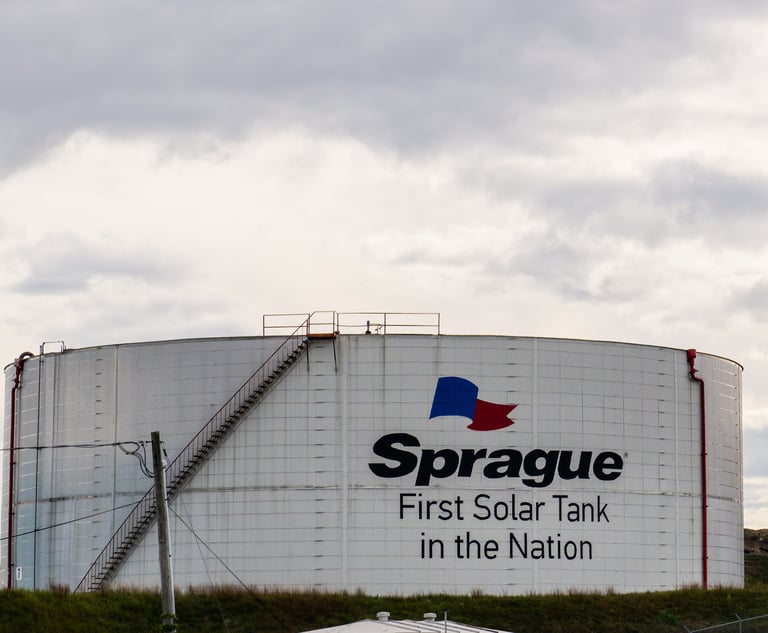 Credit: ipopba/Adobe Stock
Credit: ipopba/Adobe Stock Cancer-Detection Deal Tests Antitrust Merger Policy
It is hard to think of another recent merger that has raised more knotty antitrust issues than the Illumina-Grail transaction.
December 29, 2022 at 09:45 AM
9 minute read
Antitrust authorities on both sides of the Atlantic reached opposing conclusions about the legality of an acquisition of the developer of a cancer-detection test by a DNA-sequencing supplier. These decisions grapple with several hotly debated issues in antitrust law. The transaction does not involve the horizontal combination of competitors, but rather a vertical acquisition of a customer in an emerging and innovative market, raising concerns that, if the acquisition were not blocked, other current or potential customers—developers of cancer-detection tests—might be foreclosed from access to critical technology. Decision-makers also had to confront the buyer's commitment to solve the concerns by promising not to discriminate against these other customers. Adding further complexity, these merger challenges arose in an unusual procedural posture—especially in Europe, where the transaction did not meet the relevant thresholds for pre-merger notification— because the parties consummated the deal while investigations on both sides of the Atlantic were ongoing.
Illumina, Inc. supplies DNA-sequencing technology used for genetic and genomic analysis. Grail, Inc., is a developer of a multi-cancer early detection test that, along with similar tests still in development, is understood to be groundbreaking in the early detection and treatment of cancer. Illumina formed Grail in 2016 and then spun it off shortly afterwards, while maintaining a minority stake. Illumina agreed to reacquire Grail in September 2020, and the deal was consummated in August 2021.
This content has been archived. It is available through our partners, LexisNexis® and Bloomberg Law.
To view this content, please continue to their sites.
Not a Lexis Subscriber?
Subscribe Now
Not a Bloomberg Law Subscriber?
Subscribe Now
NOT FOR REPRINT
© 2025 ALM Global, LLC, All Rights Reserved. Request academic re-use from www.copyright.com. All other uses, submit a request to [email protected]. For more information visit Asset & Logo Licensing.
You Might Like
View All
Private Equity Giant KKR Refiles SDNY Countersuit in DOJ Premerger Filing Row
3 minute read
Skadden and Steptoe, Defending Amex GBT, Blasts Biden DOJ's Antitrust Lawsuit Over Merger Proposal
4 minute read
Antitrust Yearly Recap: Aggressive Changes by the Biden Administration Precede President Trump’s Return
14 minute read
Oil Co. Alleges Plot to Drive Away Competition in NYC's Liquid Fuel Market
3 minute readLaw Firms Mentioned
Trending Stories
- 1Gen AI and Associate Legal Writing: Davis Wright Tremaine's New Training Model
- 2Departing Attorneys Sue Their Former Law Firm
- 3Pa. High Court: Concrete Proof Not Needed to Weigh Grounds for Preliminary Injunction Order
- 4'Something Else Is Coming': DOGE Established, but With Limited Scope
- 5Polsinelli Picks Up Corporate Health Care Partner From Greenberg Traurig in LA
Who Got The Work
J. Brugh Lower of Gibbons has entered an appearance for industrial equipment supplier Devco Corporation in a pending trademark infringement lawsuit. The suit, accusing the defendant of selling knock-off Graco products, was filed Dec. 18 in New Jersey District Court by Rivkin Radler on behalf of Graco Inc. and Graco Minnesota. The case, assigned to U.S. District Judge Zahid N. Quraishi, is 3:24-cv-11294, Graco Inc. et al v. Devco Corporation.
Who Got The Work
Rebecca Maller-Stein and Kent A. Yalowitz of Arnold & Porter Kaye Scholer have entered their appearances for Hanaco Venture Capital and its executives, Lior Prosor and David Frankel, in a pending securities lawsuit. The action, filed on Dec. 24 in New York Southern District Court by Zell, Aron & Co. on behalf of Goldeneye Advisors, accuses the defendants of negligently and fraudulently managing the plaintiff's $1 million investment. The case, assigned to U.S. District Judge Vernon S. Broderick, is 1:24-cv-09918, Goldeneye Advisors, LLC v. Hanaco Venture Capital, Ltd. et al.
Who Got The Work
Attorneys from A&O Shearman has stepped in as defense counsel for Toronto-Dominion Bank and other defendants in a pending securities class action. The suit, filed Dec. 11 in New York Southern District Court by Bleichmar Fonti & Auld, accuses the defendants of concealing the bank's 'pervasive' deficiencies in regards to its compliance with the Bank Secrecy Act and the quality of its anti-money laundering controls. The case, assigned to U.S. District Judge Arun Subramanian, is 1:24-cv-09445, Gonzalez v. The Toronto-Dominion Bank et al.
Who Got The Work
Crown Castle International, a Pennsylvania company providing shared communications infrastructure, has turned to Luke D. Wolf of Gordon Rees Scully Mansukhani to fend off a pending breach-of-contract lawsuit. The court action, filed Nov. 25 in Michigan Eastern District Court by Hooper Hathaway PC on behalf of The Town Residences LLC, accuses Crown Castle of failing to transfer approximately $30,000 in utility payments from T-Mobile in breach of a roof-top lease and assignment agreement. The case, assigned to U.S. District Judge Susan K. Declercq, is 2:24-cv-13131, The Town Residences LLC v. T-Mobile US, Inc. et al.
Who Got The Work
Wilfred P. Coronato and Daniel M. Schwartz of McCarter & English have stepped in as defense counsel to Electrolux Home Products Inc. in a pending product liability lawsuit. The court action, filed Nov. 26 in New York Eastern District Court by Poulos Lopiccolo PC and Nagel Rice LLP on behalf of David Stern, alleges that the defendant's refrigerators’ drawers and shelving repeatedly break and fall apart within months after purchase. The case, assigned to U.S. District Judge Joan M. Azrack, is 2:24-cv-08204, Stern v. Electrolux Home Products, Inc.
Featured Firms
Law Offices of Gary Martin Hays & Associates, P.C.
(470) 294-1674
Law Offices of Mark E. Salomone
(857) 444-6468
Smith & Hassler
(713) 739-1250






